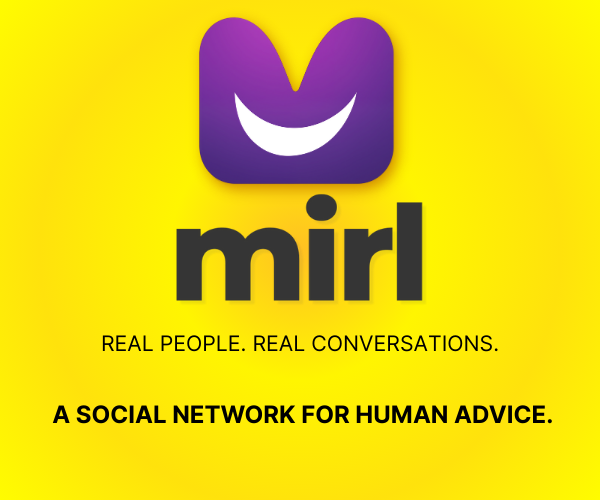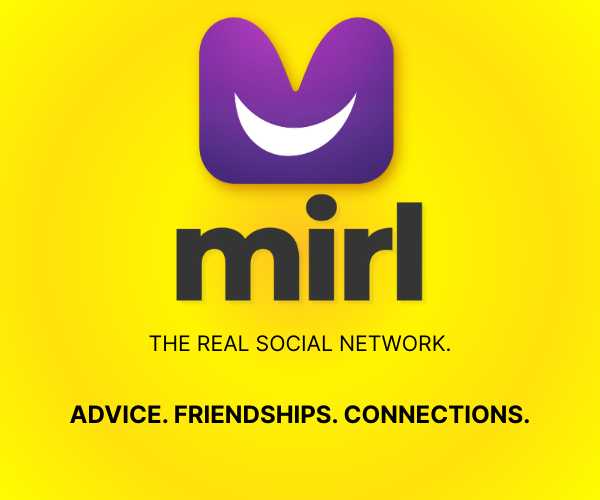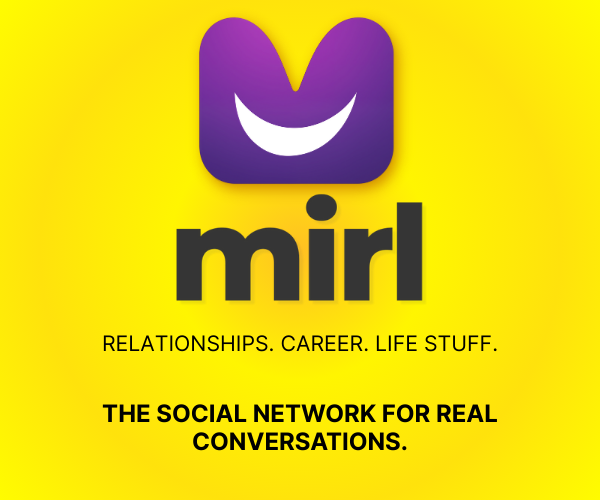Oldest Child Syndrome: 40 Truths Every Firstborn & their Loved Ones Must Hear

The bittersweet burden of being the eldest, experiencing the oldest child syndrome can shape your personality, relationships, and even your dating life.
The oldest child syndrome is a strange and vague memory for most. Remember being six years old, holding your baby sibling with the trembling focus of a heart surgeon, while your mom whispered, “You’re so mature for your age”? Yeah. That was your first unpaid management job.
If you’re the eldest child, you probably had bedtime stories interrupted by diaper emergencies, got scolded for things your siblings actually did, and heard the phrase “You should know better” way more than your therapist thinks is healthy.
And somehow, despite all that, you turned out pretty okay, except for the occasional tendency to micromanage group projects and your allergic reaction to asking for help.
Welcome to the world of “Oldest Child Syndrome.” It’s not a clinical diagnosis, but it might as well be a personality blueprint for every eldest sibling who’s ever felt like they were born with a clipboard in one hand and responsibility in the other.
Let’s unpack what this actually means, what the research says, and why it matters more than you might think, especially when it comes to love, dating, and decoding yourself.
[Read: How to Be an Adult: 27 Mature Ways to Grow Up and Behave Like It]
What Is Oldest Child Syndrome, Really?
Despite how real it feels, “Oldest Child Syndrome” isn’t officially listed in the DSM-5 or any psychology manual.
It’s a pop-psych term describing a consistent cluster of personality traits, both perks and pitfalls, that tend to show up in firstborns. Think of it as the psychological echo of being the family’s test run.
The idea has roots in Alfred Adler’s birth order theory. He believed that our place in the sibling lineup shapes our personality in predictable ways.
According to Adler, the firstborn usually feels dethroned when a younger sibling arrives, so they overcompensate by becoming responsible, achievement-driven, and sometimes overly perfectionistic.
📚 Source: Adler, A. (1928). Understanding Human Nature.
While modern researchers argue over how much birth order actually affects personality, the social expectations and parenting dynamics around being the oldest still leave their mark.
So even if the syndrome isn’t “real” in a diagnostic sense, it’s definitely real in your group chats, therapy sessions, and relationship patterns.
Why Firstborns Get the Spotlight (and the Stress): The Psychology in Plain English
Being the firstborn comes with some VIP perks, undivided parental attention, baby book entries with actual detail, and a lot of firsts. But it also comes with invisible pressures that psychologists have studied for decades.
1. Parental Investment Theory: You’re the Prototype
Parents tend to invest more time, energy, and resources into their firstborns, especially when they’re new to parenting. This results in a child who is often more achievement-oriented and closely monitored.
📚 Source: Price, J. (2008). Parent-child quality time: Birth order and parental investment in children.
2. Resource Dilution Model: You Had It Good (Until You Didn’t)
As more siblings arrive, parental attention becomes split. Firstborns go from being the center of the universe to co-managing a shared solar system.
📚 Source: Blake, J. (1989). Family Size and Achievement.
3. Teaching Younger Siblings Makes You Smarter (and Bossier)
Firstborns often take on a teaching or supervisory role, which boosts their verbal and cognitive skills, but can also lead to a habit of correcting everyone, everywhere.
📚 Source: Zajonc, R.B., & Markus, G.B. (1975). Birth order and intellectual development.
4. Higher Expectations Lead to Perfectionism
Firstborns often internalize their parents’ high expectations. Studies show they may set unrealistically high standards for themselves, and feel crushed by minor setbacks.
And this combo of “you’re the role model” plus “don’t mess it up” can definitely show up in adult life, especially in relationships, where control, anxiety, or an urge to over-give can sneak into the dynamics.
Signature Firstborn Strengths
Let’s give credit where credit is due. Firstborns aren’t just high-functioning stress sponges, they’re often the quiet powerhouses of any group.
Here’s what makes them shine, backed by science and lived experience.
1. Born Leaders (with Receipts)
From Barack Obama to Beyoncé, many leaders in politics, business, and entertainment are firstborns. Their early role as responsible trailblazers often puts them on a path toward leadership.
Studies have consistently found firstborns are more likely to lead, and take initiative, in both work and social circles.
📚 Source: Sulloway, F.J. (1996). Born to Rebel: Birth Order, Family Dynamics, and Creative Lives.
2. Responsible to a Fault
If there’s a task list, the firstborn’s already halfway through it. This sense of responsibility isn’t just personality, it’s conditioning.
Parents often lean harder on firstborns to “set the example,” and over time, this morphs into deep accountability and reliability.
3. Goal-Oriented and High-Achieving
Firstborns are usually raised with clear expectations, and sometimes pressure, to excel. It shows up in their achievements: higher grades, leadership roles, and ambition. They rarely settle for “good enough.”
📚 Source: Damian, R.I., et al. (2015), birth order effects on intelligence
4. Detail-Oriented and Organized
While younger siblings got away with chaos, firstborns often got trained in structure early. Color-coded calendars, alphabetized playlists, and meticulously packed suitcases are their love language.
📚 Source: Salmon, C.A. (2003), birth order and relationships
5. Mentor Energy: Natural Teachers
Ask a firstborn for help, and they’ll give you a step-by-step tutorial, PowerPoint optional. Their early experience guiding younger siblings makes them thoughtful mentors, skilled at breaking down complex ideas.
6. Conflict-Avoidant Peacemakers
Years of navigating sibling rivalries and tiptoeing around exhausted parents can turn firstborns into peacekeepers. They’re often the ones smoothing tensions, avoiding drama, and trying to keep the emotional equilibrium.
7. Empathic and Emotionally Attuned
Firstborns often learn to tune into other people’s moods early.
Whether it was managing their own emotions to “stay strong” or buffering parental stress, they grow into emotionally intelligent adults who read between the lines.
8. Proactive Problem-Solvers
Rather than waiting for someone else to handle it, firstborns tend to leap into action. This initiative stems from years of being the go-to fixer at home, and it’s a trait that serves them well in both personal and professional arenas.
📚 Source: Jefferson, T., (1998). Association between Birth Order and Traits.
9. Strong Moral Compass
With years of being told “you should know better,” many firstborns develop a deep internal sense of ethics. They value fairness, consistency, and doing the right thing, even when no one’s watching.
10. Tenacious and Resilient
Being the family’s test case isn’t easy, but it builds grit. Firstborns are used to navigating uncharted territory, adapting quickly, and pushing through when things get tough. Their bounce-back game is strong.
But for every superpower, there’s usually a matching shadow, so let’s explore the emotional and mental struggles firstborns carry, especially when those high standards turn inwards.
Hidden Struggles Nobody Warns You About
Beneath the gold-star stickers and honor roll certificates, firstborns often carry a silent weight.
Not because they’re weak, but because they’ve been strong for too long. Here are some of the lesser-talked-about struggles they deal with behind that well-managed exterior.
1. Perfectionist Paralysis
Firstborns are so used to being praised for doing things “just right” that they can become afraid of doing things wrong at all.
That fear of failure? It doesn’t just stall creativity, it creates anxiety loops that can paralyze decision-making. [Read: Fear of Failure and Why You Shouldn’t Be Afraid to Fail]
📚 Source: Frost, R.O., & Marten, P. (1990). Perfectionism in obsessive-compulsive disorder.
2. Overfunctioning in Relationships
In romantic or platonic relationships, firstborns may slip into the caretaker role, doing more, giving more, anticipating others’ needs before their own.
It feels loving, but over time, it can breed resentment, imbalance, and burnout.
3. Fear of Vulnerability
Being the one who “has it together” all the time makes vulnerability feel like weakness. Admitting confusion, sadness, or uncertainty doesn’t come naturally to many firstborns, which can lead to emotional distance in close relationships.
4. Hyper-Responsibility and Guilt
If something goes wrong, a firstborn’s default setting is to blame themselves, even if it had nothing to do with them. This internalized pressure to fix everything and be everything for everyone takes a toll.
5. Difficulty Asking for Help
When you’ve been the helper for everyone else, asking for support can feel foreign or even shameful. Firstborns often internalize the belief that needing help means they’re failing, so they struggle in silence longer than they should.
These aren’t just personality quirks, they’re survival strategies that developed over time.
But being self-aware is the first step to softening those edges, building healthier habits, and finally allowing yourself the space to just be, without having to be perfect.
[Read: Hyper Independence: What It is, 66 Signs, Causes & Secrets to Deal with It]
Love and Dating When You’re the Eldest
Being a firstborn in love is like dating with a tiny invisible backpack full of duty, expectations, and a laminated emergency plan.
The traits that make you a dependable rock in friendships, like consistency, loyalty, and thoughtfulness, can also become tricky in romance if left unchecked.
1. You Might Be Attracted to “Fixer-Uppers”
Years of being the reliable one often primes firstborns to partner with someone who needs help, structure, or motivation. Cue relationships where they play the emotional coach instead of an equal. While helping feels natural, it can lead to imbalance and exhaustion over time.
2. Your Love Language Is Probably Acts of Service
You show love by doing, remembering their appointments, fixing their tech, cooking when they’re stressed.
But when that’s not reciprocated, it can leave you feeling unseen or unappreciated, even if your partner loves you deeply in their own way. [Read: 67 Sweet Yet Small Romantic Gestures that Show Love in the Biggest Way]
3. You Expect Emotional Maturity (and Might Be Disappointed)
Firstborns mature early, and unconsciously expect others to do the same. But not everyone was forced to grow up fast.
This can lead to frustration or even condescension when your partner doesn’t “handle things” the way you do. [Read: 20 Signs of Emotional Maturity & Traits that Reveal a Mature Mind]
4. You’re Prone to Control (Even When You Mean Well)
You plan the trip. You make the spreadsheet. You “just check” the restaurant reviews. Firstborns often take the lead because they want things to go well, not because they want to dominate, but to your partner, it can come off as micromanaging or a lack of trust.
5. You Struggle With Receiving Care
When your identity has been built around being the caregiver, being cared for can feel uncomfortable or even suspicious. Letting someone support you emotionally might require more vulnerability than you’re used to, but it’s key for deep intimacy.
Relationships are an incredible mirror. They show us the edges of our own growth, and for firstborns, learning to relax, release control, and receive love openly can be one of the most liberating journeys of all.
The Eldest Daughter Experience: A Double Whammy of Pressure
If being the oldest child comes with a weighty set of expectations, being the eldest daughter can feel like carrying that pressure in heels, while balancing a tray of emotional labor.
Eldest daughters are often cast as both second mothers and emotional thermostats in the home. From managing their younger siblings’ meltdowns to comforting parents during tough times, they frequently become the family’s default caregiver.
This emotional apprenticeship can lead to strong empathy and leadership, but it also normalizes overextension.
[Read: 47 Hurtful Signs & Effects of Being the Daughter of a Narcissistic Mother]
1. They Mature Sooner, But at a Cost
Eldest daughters are often praised for being “little adults.” They get early exposure to adult concerns, which fosters independence but can also rob them of a carefree childhood.
📚 Source: Caplan, P.J. (1990). Making Mother Blaming Visible.
2. They Inherit Emotional Labor Early
They learn to notice when mom’s overwhelmed, or when dad’s gone quiet. This hyper-attunement helps them become intuitive and caring, but also leaves them emotionally overtaxed.
📚 Source: Hochschild, A.R. (1983). The Managed Heart.
3. Society Reinforces the “Good Girl” Trap
Cultural scripts often reinforce that girls should be helpers, nurturers, and rule-followers. For an eldest daughter, these expectations get multiplied, and internalized.
📚 Source: Gilligan, C. (1982). Psychological Theory and Women’s Development.
The result? Many eldest daughters grow up to be high-achieving, deeply compassionate women who struggle to set boundaries or believe they’ve earned rest.
But here’s the truth: You don’t have to earn your worth through exhaustion. Being the eldest daughter shaped you, but it doesn’t have to define you forever.
Next, let’s unpack the biggest myths about birth order psychology, and what science really says about how much it matters.
What Science Really Says About Birth Order Effects
Okay, let’s get one thing straight: birth order psychology is fascinating, relatable, and emotionally accurate, but when it comes to hard science? The results are surprisingly mixed.
While older psychological theories (like Adler’s) gave birth order a starring role in personality development, more recent large-scale studies suggest that its effects are much smaller than most of us think.
1. The Mega Meta-Analyses Say: Tiny But Real
A major 2015 study analyzing over 20,000 people found that while firstborns did slightly outperform their siblings on intelligence and responsibility, the differences were minuscule. As in, you’d never guess it unless you looked at statistical averages.
📚 Source: Rohrer, J.M., Egloff, B., & Schmukle, S.C. (2015).
2. Family Dynamics Matter More Than Birth Order Alone
Newer research emphasizes that things like parenting style, socioeconomic status, sibling spacing, and even gender roles matter just as much, if not more, than whether you were born first or fifth.
📚 Source: Damian, R.I., et al. (2015).
3. But the Emotional Experience Is Valid
Just because the average firstborn isn’t dramatically more responsible or anxious doesn’t mean you didn’t experience those things. The feelings are real, even if the statistics try to flatten them. Context is everything.
So yes, you might be a responsible perfectionist partly because you were born first. But also because of who raised you, how they responded to you, and what was going on in your world.
And that’s the beautiful mess of personality, it’s shaped by both nature and nurture, birth order and beyond.
Thriving as a Firstborn: Tips, Tools, and Truths to Live By
Being the oldest doesn’t mean being the most put-together all the time, it just means you’ve had a front-row seat to responsibility, expectations, and probably more than a few “Be nice to your sibling!” lectures. But awareness is powerful. Here’s how to use it to your advantage:
1. Drop the “Perfect” Badge
Perfection isn’t a personality trait, it’s a pressure. Notice when your standards become self-sabotage. Practice self-compassion like you’d offer to a younger sibling who made a mistake.
2. Ask for Help Without Guilt
Being capable doesn’t mean you have to carry everything alone. Start small, delegate one task, open up about one struggle. Letting people in doesn’t make you weaker. It makes you real.
3. Reclaim Rest and Joy
You are allowed to do things just because they’re fun, not because they’re productive. Schedule joy like you schedule responsibility. You’ve earned it. Rest is not a reward for burning out; it’s a right.
4. Challenge the “Caretaker First, Self Second” Mentality
It’s noble to care for others. But you’re not the emotional glue for every room you walk into. Boundaries aren’t walls, they’re doors with doorknobs, and you get to decide when they open. You get to be the priority, too.
5. Build Relationships That Feel Safe, Not Just Impressive
Whether in dating or friendships, gravitate toward people who make you feel seen, not just praised. You don’t need to perform to be loved. Connection is not something you earn, it’s something you receive.
6. Redefine Success On Your Own Terms
Your life doesn’t have to be a constant report card. Allow room for curiosity, exploration, and even failure. The most successful lives are rarely the straightest paths, and yours doesn’t need to look like a résumé.
7. Give Yourself the Parenting You Wish You’d Had
Speak kindly to yourself. Encourage your efforts. Validate your emotions. Remind yourself that you don’t have to be “on” all the time. Inner nurturing goes a long way in healing oldest child syndrome.
8. Learn to Sit With Discomfort Without Fixing Everything
Sometimes, the hardest thing for a firstborn is to just be. When someone’s hurting, you want to fix it. When something’s wrong, you want to act. But real intimacy comes from presence, not performance.
9. Celebrate Softness as Strength
You’ve likely been strong for everyone. But what if softness, tenderness, and asking for comfort were their own forms of bravery? Let your vulnerability be a bridge, not a burden.
10. Remember: You Don’t Have to Earn Your Exhale
You don’t need to justify taking a break, going offline, or having a messy day. You are allowed to breathe deeply and rest fully, just because you’re human.
You’re More Than Just the Eldest
Being a firstborn means growing up with a fast-track to maturity, responsibility, and a deep understanding of how to hold others together. But as much as you’ve learned to lead, you’re also allowed to be held.
[Read: 34 Life-Changing Steps to Fall in Love With Yourself All Over Again]
So if you’re dealing with the oldest child syndrome in any way, go ahead, unclench your shoulders, take off that invisible superhero cape, and remind yourself: you’re not just the oldest. You’re also allowed to be whole. And that’s the most powerful role you’ll ever play.



















